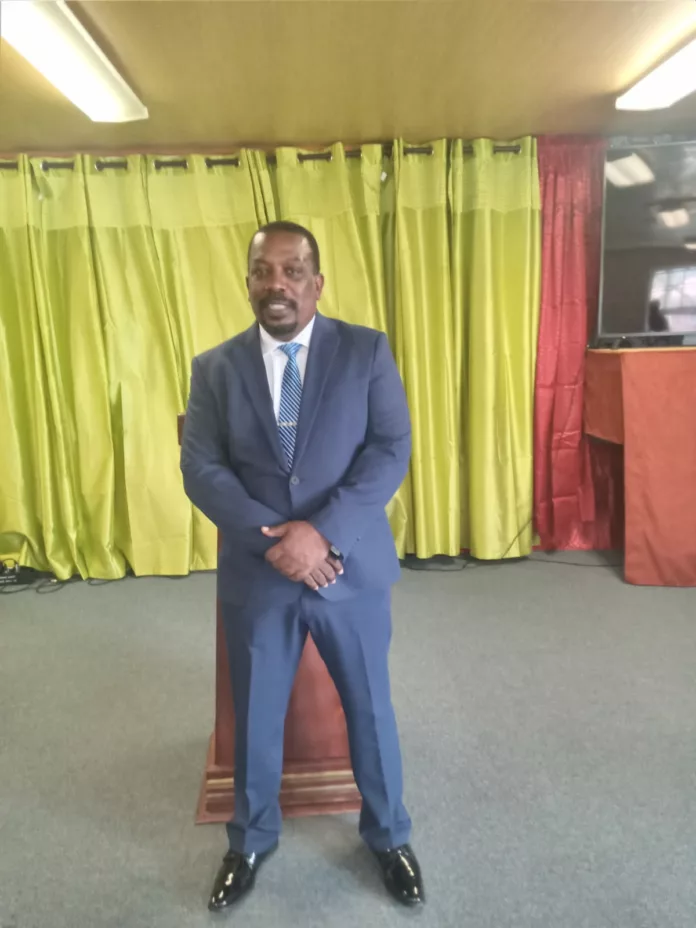
By Barbara Arrindell
Dr Lennox C Doran PhD is the Managing Director and Counseling Psychologist at L C Doran Consulting Services located in Upper Gambles. He and his team specialise in anger management, suicide prevention, marriage and relationship counseling, depression, anxiety, grief and stress.
Barbara: Beyond your professional life, who is Lennox Doran?
Dr Doran: I was born in the parish of St Elizabeth in Jamaica and lived between my home parish and Kingston where my mother resided, enabling me to have the best of rural and city life. I am my mother’s only child and the first grandchild. After finishing High School, I moved to live with my mother in Kingston and there started the journey toward adult life. I have worked in the insurance sector, banking, telecommunications, courier services, mental health, and my calling to Christian service.
Barbara: What made you give up the other work options in favour of mental health?
Dr Doran: I believe mental health called me. As someone counseling persons regularly because of my faith-based ministry, I realised how vast the needs were then, and still are, now. A friend who is a mental specialist said to me one day when I needed help with an individual who presented with a challenge that was, at the time, outside of my scope, “Stay in your lane.” For whatever reason those words propelled me. They motivated me to complete my studies and to properly prepare myself to truly help persons in this area.
Barbara: Tell us a bit about your call to Christian service. What does that entail, and what impact has it had on your life?
Dr Doran: I felt this call in my early 20s but ran from it, however the call came again in 2001, and I said “Yes.” I have served at the church leadership level, summer camps, helped with church growth and evangelism plans, and new-church establishment. Church life has significantly impacted my life and my service to others, from cleaning a building to driving the church bus and mentoring youths. I always want to be learning and embracing the joy of serving others, even when it is tough. As Christians, we aren’t doing the work to be seen, but because we love.
Barbara: You’re now working in Antigua. What caused you to make the move here?
Dr Doran: I moved to Antigua in 2013 primarily for Christian ministry. I came to help establish a new branch of the church and while doing that, I worked with a housing development company.
Barbara: How long have you been practicing in Antigua and Barbuda and what are the greatest mental health challenges/needs that you have seen?
Dr Doran: I have been seeing people mainly in the church environment since 2013 but opened the practice in 2021.
Some of the greatest challenges or needs are:
1. The mental health legislation needs updating.
2. The mental health model that is presently being used is the asylum model. That has to change.
3. There is no mental health hospital for those under 18 years old.
4. We have no psychiatrists at the only public hospital.
5. There is limited information on how to access urgent mental health services.
6. There’s a lack of data collection to inform policy makers regarding mental health.
7. We have limited public education regarding mental health and mental illness.
Barbara: What are your hopes for mental health care in Antigua and Barbuda, to include, what you would like from administrators, individuals, community groups and society at large?
Dr Doran: My hope is to see the administrators put together a comprehensive plan for mental health services in the country:
1. Antigua and Barbuda needs a public comprehensive list of approved mental health professionals.
2. We must strengthen the availability of mental services at Sir Lester Bird Medical Center
3. We have to increase the number of mental health professionals employed by the government.
4.More public education campaigns on mental health would go a long way.
5. Mental health services need to be available at the community clinics
6. Perhaps it is time to look at legislation regarding mental health days for employees
I would be very happy to see that the society at-large show more empathy to persons with mental illness. Corporate companies too must consider engaging the services of mental health professionals so the staff may have access to mental health services.
Barbara: Finally, Sir, the Church. What role can or should the church play in this arena?
Dr Doran: I believe that the church has a responsibility to take care of the whole man. This includes healthcare, and obviously, mental health. I think intense education is needed in the church community and undoubtedly at the leadership level. I have seen where mental health illnesses were treated as demonic possession because it was not recognised as a mental health illness, or was not believed to be so. This is where the church can help by bridging gaps and enlightening the congregation and wider community. People need to be aware that help is available for the condition, and that it is okay and very important that professional help is sought as early as possible.

